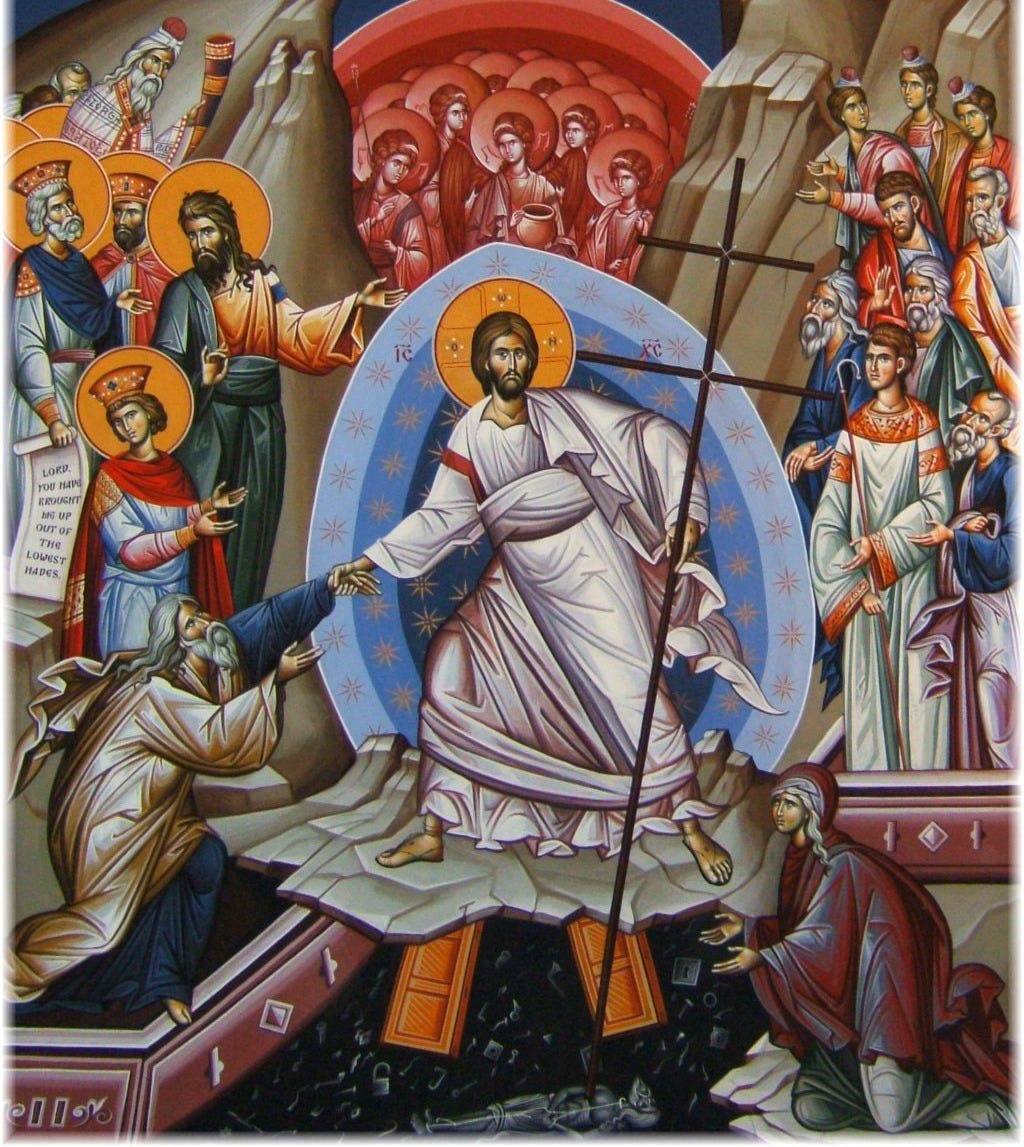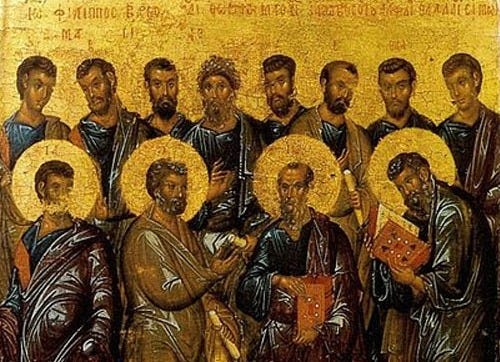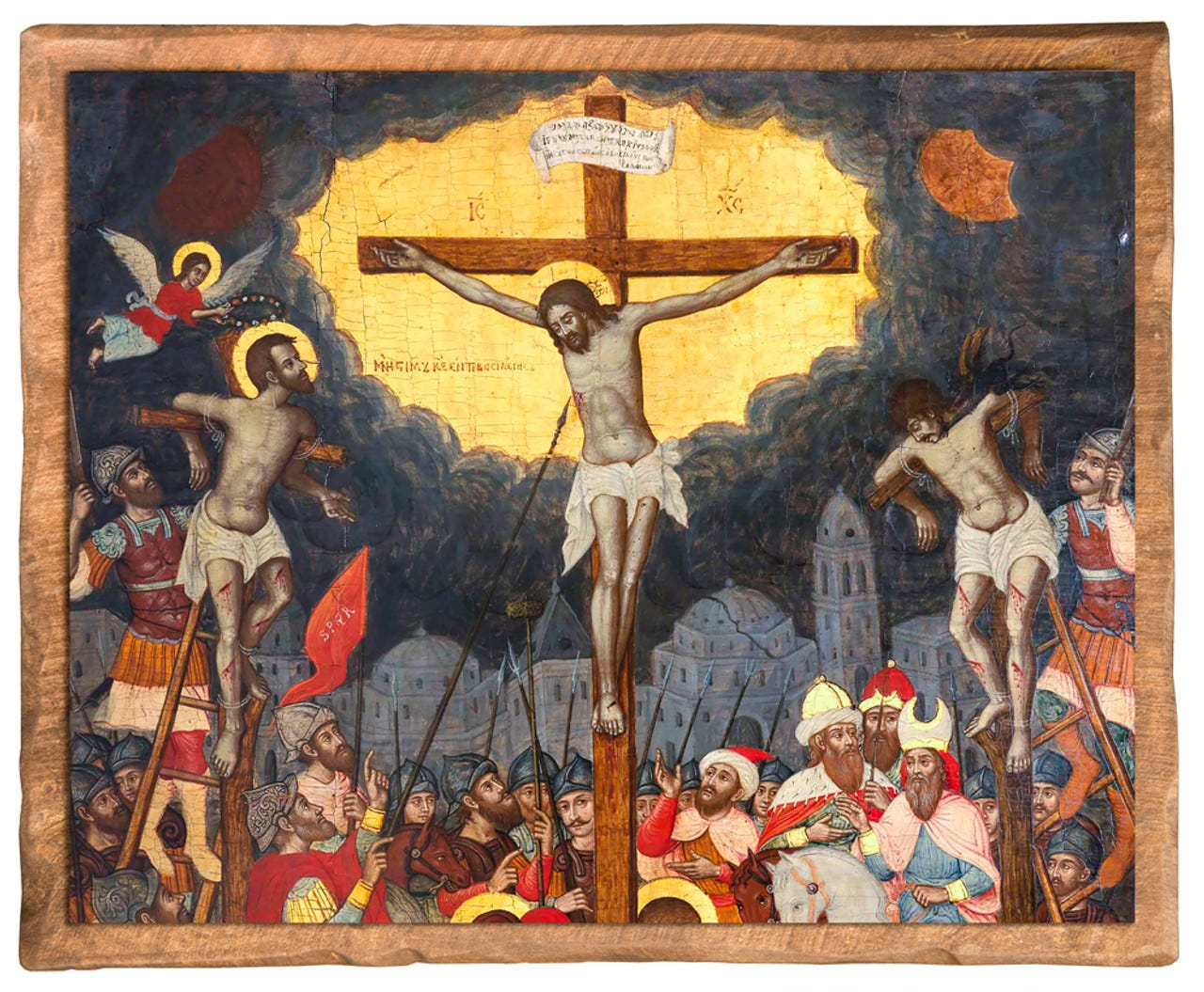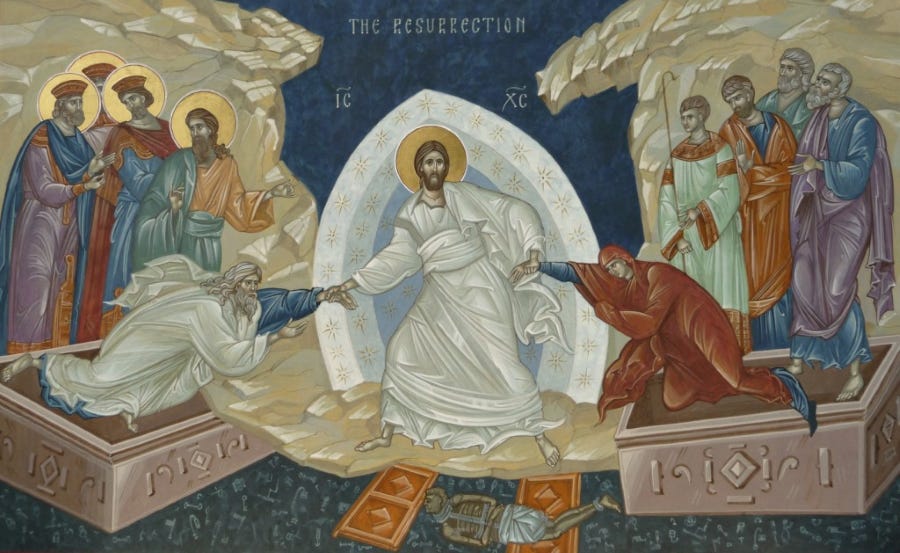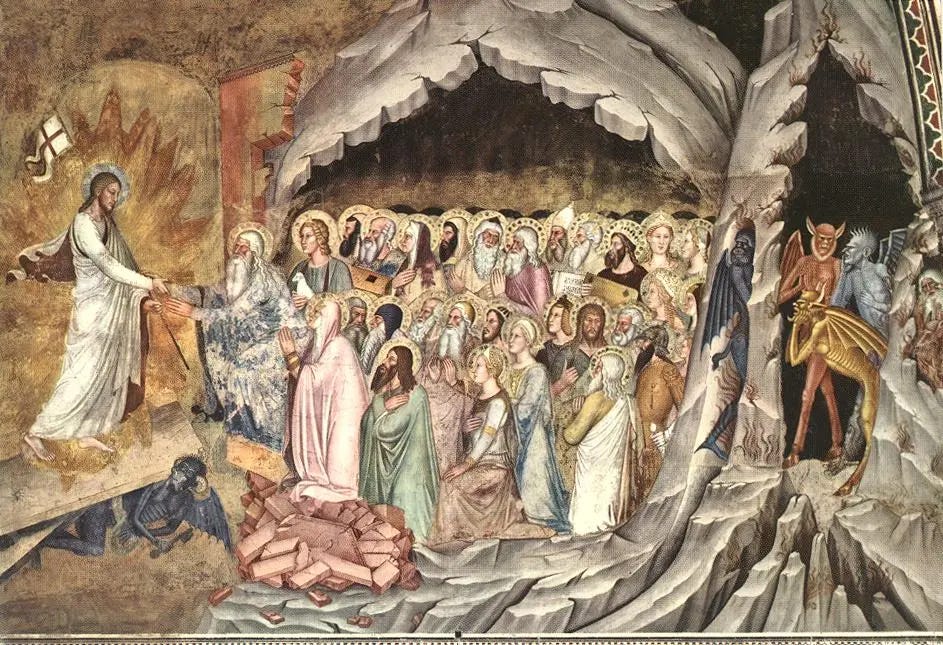Where Did Jesus Go After Dying on The Cross?
Jesus and Completing the Messianic Mission
Where did Jesus go after he died? It’s a question Christians have been asking for 2000 years. But it also has an answer thousands of years old.
The Apostle’s Creed
The Apostle’s Creed was developed by the Apostles and the early Christians to outline what the Christian faith was, and everything that a Christian believes. This short set of statements would define the difference between a true Christian and any who preached a false gospel. It’s within the Apostle’s Creed where we can find an answer to where Jesus went after his crucifixion.
“(Jesus) was crucified, died and was buried; he descended into hell; on the third day he rose again from the dead.”
Every single article of the Creed was scrutinized when being put together to ensure that everything affirmed in the Creed was right and true. So why does the Creed affirm that Jesus descended into hell, and why did the Apostles believe it was so important they had to add it into the Creed that would define the faith of Christians for thousands of years?
Defining Hell
In English, we really only have two words to describe where people go after death, heaven and hell. However, the Jews of Jesus’ time used several words across multiple languages to describe life after death. It’s important to understand what these words mean because these words and the way they were understood is really important to understanding how the Jews (and early Christians) viewed life after death.
Here’s some of the common words/phrases the Jews used during Jesus’ time:
Sheol: This term is really common throughout Scripture, but it’s one that we don’t have a direct translation for in English. Sheol was understood as the resting place of the dead. It was not a place of punishment, just a place where the dead go.
Hades: A Greek word similar to Sheol, simply a resting place of the dead. This was the place where the Jews believed the righteous dead went.
Gehenna: This was an actual place during the time of Jesus. It was a valley outside of Jerusalem that had a history of evil and was used as a dump for waste and dead bodies and was almost always on fire. This was the word that the Jews used to describe a place after death of eternal punishment and damnation. So this was the place where the Jews believed the damned went.
Abraham’s Bosom: Used in Jesus’ Parable of Lazarus and the Rich Man (Luke 16:22-26), this was seen by Jews as a place after death where the righteous went.
So the “hell” being used in the Apostle’s Creed actually better translates to “Sheol” and “place of the dead” rather than the inferno for the unrighteous that we imagine today.
From these words, one can see that the Jews had a broader view of life after death than just heaven and hell.
What Does the Bible Say
The Bible actually has a lot more to say about where Jesus went after His death than most would think. Peter makes multiple odd references to where Jesus went after his crucifixion.
In 1 Peter 3:18-19, Peter writes,
18 For Christ also suffered once for sins, the righteous for the unrighteous, that he might bring us to God, being put to death in the flesh but made alive in the spirit, 19 in which he went and proclaimed to the spirits in prison
Later on in 1 Peter 4:5-6 he writes,
“but they will give account to him who is ready to judge the living and the dead. 6 For this is why the gospel was preached even to those who are dead.”
Peter writes, not once, but twice that Jesus preached to the dead as part of His ministry. And it’s not just Peter who makes these claims, but also Paul.
Writing to the Ephesians Paul writes,
9 “(In saying, “He ascended,” what does it mean but that he had also descended into the lower regions, the earth? 10 He who descended is the one who also ascended far above all the heavens, that he might fill all things.) (Ephesians 4:9-10).”
And finally Matthew writes that Jesus Himself said something rather odd,
“For just as Jonah was three days and three nights in the belly of the great fish, so will the Son of Man be three days and three nights in the heart of the earth (Matthew 12:40).”
So here we see that multiple Apostles are writing that Jesus descended into the dead, and affirming what is being declared in the Apostles creed. However, there’s one verse in the Bible that appears to contradict everything the Apostles are saying.
But What About the Thief?
The books of Matthew, Mark, and Luke all record the two thieves on opposite sides of Jesus. However, only Luke mentions Jesus’ promise to the thief that he will join Him soon.
In Luke 23:42-43,
“And he said, ‘Jesus, remember me when you come into your kingdom.’ 43 And he said to him, ‘Truly, I say to you, today you will be with me in paradise.’”
This verse actually sparks a lot of debate between Protestants (especially Evangelicals) and Catholics over a number of issues. But the verse completely contradicts the belief that Jesus descended into the dead after His death, and clearly states that He ascended to Heaven right? Well, not exactly.
This is where the defined words at the beginning really matter. The Jews believed that man was separated from God through death, but in death there were two places you could go: Sheol and Gehenna.
Gehenna was the place of the damned and was reserved for the unrighteous dead who would never be reunited with God. And then there’s Sheol, the place for the righteous dead.
The Jews didn’t necessarily believe in a Heaven where their souls were united with God because sin separated them from Him. They believed that in death they would go to a holding place (Sheol), where they would wait for the Messiah who would reunite them with their physical bodies and with God. And another word the Jews used to refer to the peaceful holding place for the righteous dead was Paradise.
So what Jesus is really saying when He says that the thief will join Him in Paradise is that He will be with the thief again in Sheol that day, not in Heaven because the gates of Heaven hadn’t been opened by Christ yet.
But why does it matter so much for Jesus to have descended into the dead? Isn’t it all just a little side detail?
Why Was It Important For Christ to Have Descended?
To bear the full weight of sin
Paul famously writes to the Romans that the wages of sin is death. If Christ was to truly bear the sins of the world, to be the sacrifice for all of sinful man, then He would need to undergo the same punishment as all men before Him, the complete separation from God through death. In addition, this would’ve had to been His fate if He was truly man.
What sacrifice would Jesus, and God by extension, be really making if Jesus had joined God in Heaven immediately after His bodily death? Jesus was truly man, both body and soul. How could He truly bear the wrath of God if He had only experienced bodily death and not a spiritual one too?
The punishment of Christ wasn’t just the few hours of excruciating pain He endured on the Cross, but also His complete separation from the Father in death. And He needed to join the dead in order to complete salvation…
To redeem death
Jesus had a mission as the Messiah to bring His light to all of creation, to all aspects of the human experience. And a major part of the human experience is life after death.
Before Christ, Satan oppressed the world through death, the complete severance from God. But Christ’s descent into the dead finally changed that. By descending into the dead, He opened the gates of Heaven, allowing souls an alternative from complete separation from God.
By descending into the dead, Christ broke the power of death. God, being holy and free from sin, could not descend down to save the unholy and sinful dead. So Christ, being fully God and fully man, descended into the dead to finally bridge the gap.
Death could no longer be used to separate us from God.
But Christ didn’t descend just to redeem the process of death itself, but also rescue the dead and lost themselves.
To rescue the dead and lost
The biggest reason for Christ to descend into the dead was to rescue those who had died before Him. The dead were separated from God, waiting for their Messiah to come and reunite them to God. So it was part of Christ’s messianic mission to come and rescue them.
This is what Peter was referencing when he writes that Christ “preached to the dead.” The billions, or maybe even trillions, of lost souls, all who died before Christ came, were waiting for Him to come save them. Christ had an obligation to save them too, maybe even more than the living, because of how many had died before He had come.
But, in poetic tradition, out of the billions of dead souls, Christ went specifically looking for one, Adam.
In an ancient homily (sermon), one man wrote over a thousand years ago,
“The King . . . has raised up all those who have slept ever since the world began. . . . He has gone to search for Adam, our first father, as for a lost sheep. Greatly desiring to visit those who live in darkness and the shadow of death, he has gone to free from sorrow Adam in his bonds and Eve, captive with him-He who is both their God and the son of Eve. . . . [Jesus says to Adam] 'I am your God, who for your sake has become your son. . . . I order you, O sleeper, awake. I did not create you to be a prisoner in hell. Rise from the dead, for I am the life of the dead.’”
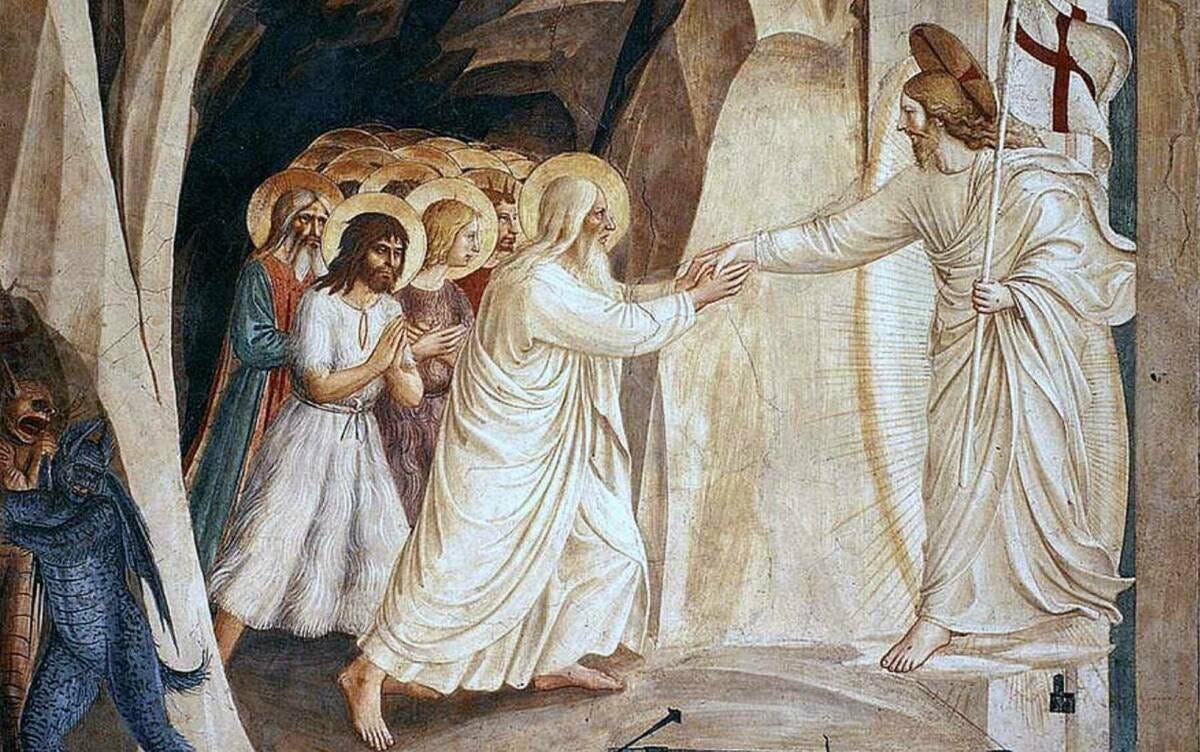
Christ descended into the dead to complete what had been started long before in the Garden of Eden. Adam, old and waiting all those years, the Father of all Creation, the one who had caused sin to enter into the world, the one who allowed death to oppress mankind finally meets God face to face once again, not in judgement, but in love. Through Christ, God had suffered death and descended into the dead to come rescue His lost sheep.
It’s for this reason that Paul writes to the Philippians,
“Therefore God has highly exalted him and bestowed on him the name that is above every name, 10 so that at the name of Jesus every knee should bow, in heaven and on earth and under the earth, 11 and every tongue confess that Jesus Christ is Lord (Philippians 2:9–11).”
Conclusion
For all these reasons, the Apostles and the early Church found it necessary to specifically include the phrase “Jesus descended into the dead” in a summary of their beliefs as Christians. It’s for these reasons that the Church today continues to affirm the fact Jesus truly died every time we declare our faith and what we believe in.
Christ descended into the dead to truly bear the weight of sin, to redeem death itself, and to rescue the lost souls of everyone who came before Him.
Is it absolutely necessary to believe this one fact about Jesus’ life? Not really. The salvation of one’s soul doesn’t hang on this one fact.
But is it important? Does it shape our view of salvation? Does believing in the fact God descended into the full depths of sin to rescue all mankind greatly expand our idea of God’s love for us, and in return expand the greatness of love we ought to show others? I would argue yes.


